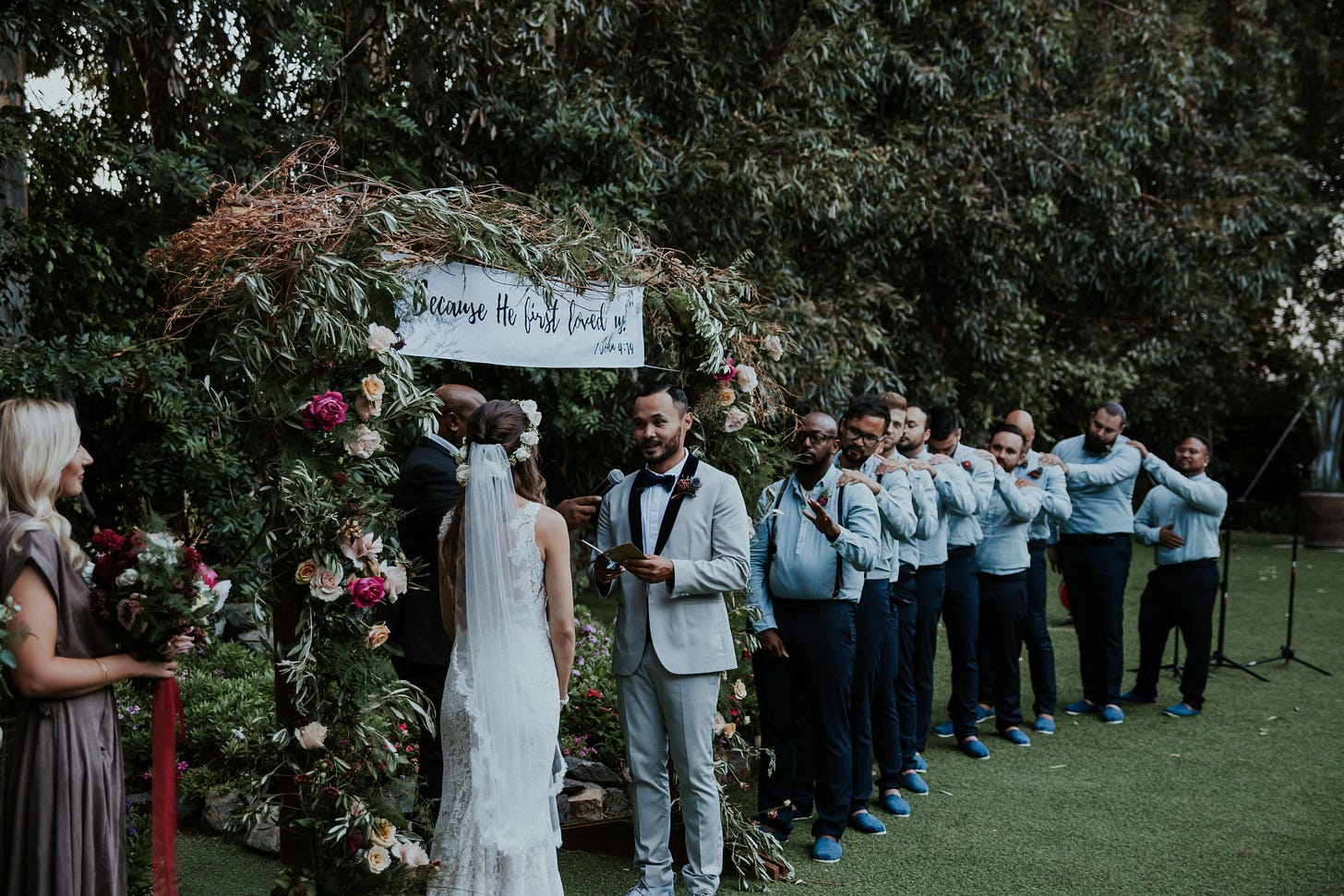If there’s any woman in the world who deserves two mothers’ days, it’s my wife. Of course, I am her husband, so I may be a bit biased in this regard, considering that I get to witness the sheer magnitude of the love and glory of the Lord in her day-to-day character.
We all have mothers or know mothering figures who have been there through thick and thin, bringing forth life, nurturing, and caring for us. Some women also have the privilege and honor of becoming mothers—realizing just how much they had taken certain things for granted growing up.
As a husband and father, it is sometimes a challenge to maintain a healthy romance—holidays are an invitation to be creative in how one celebrates your wife, but two mother’s days!? Isn’t that one too many?
Let me explain.
2 Mother’s Days?
In the UK, Mothering Sunday is observed on the fourth Sunday of Lent. This annual rhythm has been around in the UK and Ireland since the end of the Middle Ages. The American counterpart to this tradition is actually a more contemporary practice that has existed for a little over a hundred years and has historically been celebrated on the second Sunday of May.
As a household constantly engaging in cultural learning in the British context yet maintaining certain Americanisms, such as certain holidays (i.e., Thanksgiving), we decided that Steph should get 2 Mother’s Days each year. If you’re wondering, Father’s Day is the same day for the US and the UK, so I don’t have the same benefit of parallel customs.
Do I really need a reason to brag about my wife or to celebrate her and recognize the Lord’s redemptive work in and through her?
My instinct as a minister is to move away from garden variety teachings based on cliche texts like the book of Ruth or Esther to glean from or expound on the timeless subject of Biblical mothering, womanhood, and femininity. I’d much rather speak on motherhood from texts like Paul’s letter to the Ephesians or Jesus’ Sermon on the Mount. Teaching from the Bible appeals to a universal wisdom beyond humanity’s collective, albeit finite capacity—it transcends age, gender, years of experience, education, and individual authority or so-called expertise on the subject. But as we know, the Bible is the living Word of God. A collection of authoritative books that gives us all that we need to live wisely, righteously, and profitably in this life. We can revisit Scripture repeatedly, and the Lord will illuminate something different each time. Having said that, let’s go ahead with one of those cliche texts and see if there’s something we have yet to see.
“Her children arise and call her blessed; her husband also, and he praises her: ‘Many women do noble things, but you surpass them all.’” –Proverbs 31:28-29
When I think about my wife, there’s just so much to articulate I can barely work out the right words to do her justice. It’s raw and unfiltered, venturing past the extent of my range of vocabulary and language. This excerpt from the skillfully written 22-line poem at the end of the book of Proverbs (31:10-31), is one of those typical go-to verses that women often put on coffee mugs, bumper stickers, or posters. Whether it was penned by King Lemuel or some anonymous poet, one thing is for certain—this author’s intention was to use exhaustive measures to affirm and praise this unnamed woman who is a wife and a mother. I recall that my wedding vows were 808 words long, and I’d like to think that our loved ones in attendance suffered through it, on one of the hottest days of the summer in Southern California no less, with a smile and some laughter. It was my attempt to articulate just how much Steph means to me through a series of Covenant promises.
Proverbs 31 Woman
Many godly women I know gravitate toward passages like Proverbs 31 to draw inspiration and at times, find a prescription for the way in which they live their lives. But is it as simple as finding those points of application and practically living them out? We see in the passage that this woman is described as being strong, wise, entrepreneurial, hard-working, dignified, respected, faithful, and fair. Is this supposed to be a description of the heights of femininity that women should strive to attain?
Not to get too technical, but you wouldn’t study a passage of Proverbs the same way you would a historical narrative or a prophetic oracle. That’s often missed when liberal-leaning critics of the Bible get vitriolic about literal interpretations and antiquated principles extrapolated and put into practice in the various sectors of life. These critiques fall flat simply based on surface-level fly-by readings or buzzworthy hearsay about the Bible.
Here are a few questions to consider:
Why was this piece of poetry written?
Who is the author’s intended audience? Is this text written for women?
What does it mean to be a woman of noble character?
Diving into Study
If you take a step back and consider both the genre and broader scope of the book of Proverbs, you will be interested to see that the virtue of wisdom, which had been interwoven throughout, has culminated in the form of wisdom personified in this woman. Upon closer inspection, you will find that this literary unit of poetry (31:10-31) features an acrostic pattern, which begins each line with a word that starts with each successive letter of the Hebrew alphabet. This indicates the comprehensive use of the full palette of language at this poet’s disposal to express emotions and thoughts in his search for meaning and beauty in this world—particularly in this woman. The opening line of this poem is the question: “A wife of noble character who can find?” Other translations render it “A virtuous woman, who can find?” Yet in my research, I found that the Hebrew phrase “eshet chayil” would be best translated as woman of valor. There is an unmistakable aesthetic quality to a woman of valor. In other words, it’s not just the outward appearance of my wife that surpasses all others, captivating both me and our children—her valor is magnetically beautiful.
In some Jewish families, this poem is sung on the night before the Shabbat meal, and certain traditions connect Shabbat to a feminine manifestation of the divine. While women are free to aspire to these specific traits and distinct household circumstances to define their agency and find applications thereof, the author’s intended audience was actually men! Men would memorize this poem and sing it to their wives, daughters, friends, sisters, and mothers.
Another literary feature that clues us into the emphasis on men finding and praising such a woman is the chiastic structure of the poem. A chiasm is a poetic device marked by parallel lines that have corresponding themes (take a look at verses 10 and 30-31, and 22 and 24 for an example) and is designed to draw the attention of the reader toward the middle line, which acts as the emphasis or main focus of the poem. The middle of the poem is verse 23, which reads: “Her husband is respected at the city gate, where he takes his seat among the elders of the land.”
By God’s grace and power, my wife creates a world for me to be all God has intended me to be. I cannot be who I am without her, and when people interact with me, they will recognize this introverted woman of valor, who is one flesh with me. They will see her bravery in following Christ and taking up the calling to mission in the UK, her perseverance in home birthing our daughter (no epidural), her love through baking/cooking, her empathic warmth in hospitality, and witness the effects of her faithful stewardship and steadfast faith. She is both beautiful and fruitful in her valor. It’s what leads us to praise her and call her blessed.
What does it mean to be blessed?
Contrary to the colloquial use of the term, which many unbelievers take to mean good fortune, a desired outcome, or an extraordinary comfort, blessed can also be translated as “favored.” It is not synonymous with good luck or karma (in its most accurate Dharmic origins or watered-down westernized appropriated use). Being blessed or favored explicitly includes a belief in God—a sort of happiness that results in receiving favor from the Lord. Being called blessed by husband and children is a desired place in life. An acknowledgment by onlookers that this woman of valor is a gift from the Lord, and nothing less than that! Being blessed is the way she was created to be.
Moreover, if we take Jesus’ revolutionary teachings seriously, being #blessed is not just a sort of material or temporal benefit to parade before others as a ‘W’ in life (winning). The Beatitudes (Matthew 5:3-12; Luke 6:20-23) describe blessedness as an inner quality of prosperity—a spiritual state of joy, deep contentment, and well-being that any form of suffering cannot shake. This quality is incredibly attractive and must be acknowledged and cherished. Whether it’s constant mishaps, spiritual warfare, poverty, persecution, grief, famine, war, or any other variety of trial, tribulation, or tragedy in life—we, who authentically follow Christ and are in fellowship with His suffering, are blessed. We call Stephanie blessed.







